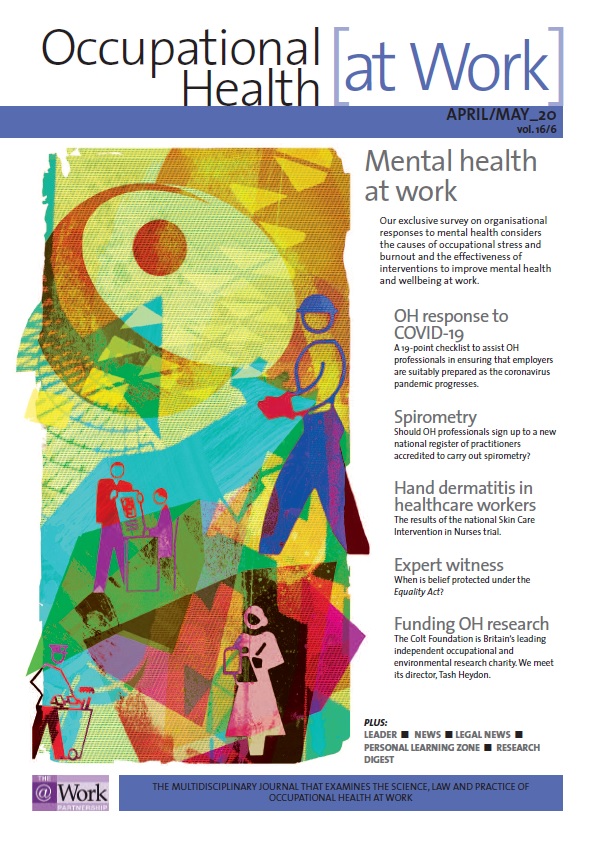April/May 2020 (vol. 16/6)
ContentsFeaturesNewsLegal
NewsResearch DigestResearch PlusCPD
 Survey: Organisational approaches to mental health, part 1
Survey: Organisational approaches to mental health, part 1
Part 1: causes, consequences and interventions
Summary:
In the first report of Occupational Health [at Work]’s exclusive survey on organisational approaches to mental health, John Ballard and Alice Sinclair focus on the prevalence and causes of occupational stress and burnout, the consequences for individuals and organisations, and the initiatives employers use to support general mental health and wellbeing at work. Crucially, OH professionals were asked whether such initiatives are effective.
Mental ill health, including stress, depression, anxiety and serious mental illness, is responsible for around 17.5 million lost working days a year, according to the Office for National Statistics. This accounts for 12.4% of all sickness absence and represents a huge cost to workers, employers and the economy. The Health and Safety Executive (HSE) estimates that in 2018/19, there were 600,000 new or long-standing cases of work-related stress, depression or anxiety, which together accounted for 44% of all work-related ill-health cases and 54% of the total lost time attributed to work-related ill health. The HSE puts the economic cost of work-related stress at £5.2 billion a year. Stress and poor mental health is a significant issue for employers, but one that is not always managed effectively…….
John Ballard is editor of Occupational Health [at Work].
Alice Sinclair is a freelance social policy researcher with considerable experience in research on OH.
Author: Ballard J, Sinclair A
Occupational Health at Work April/May 2020 (vol. 16/6) pp15-23



